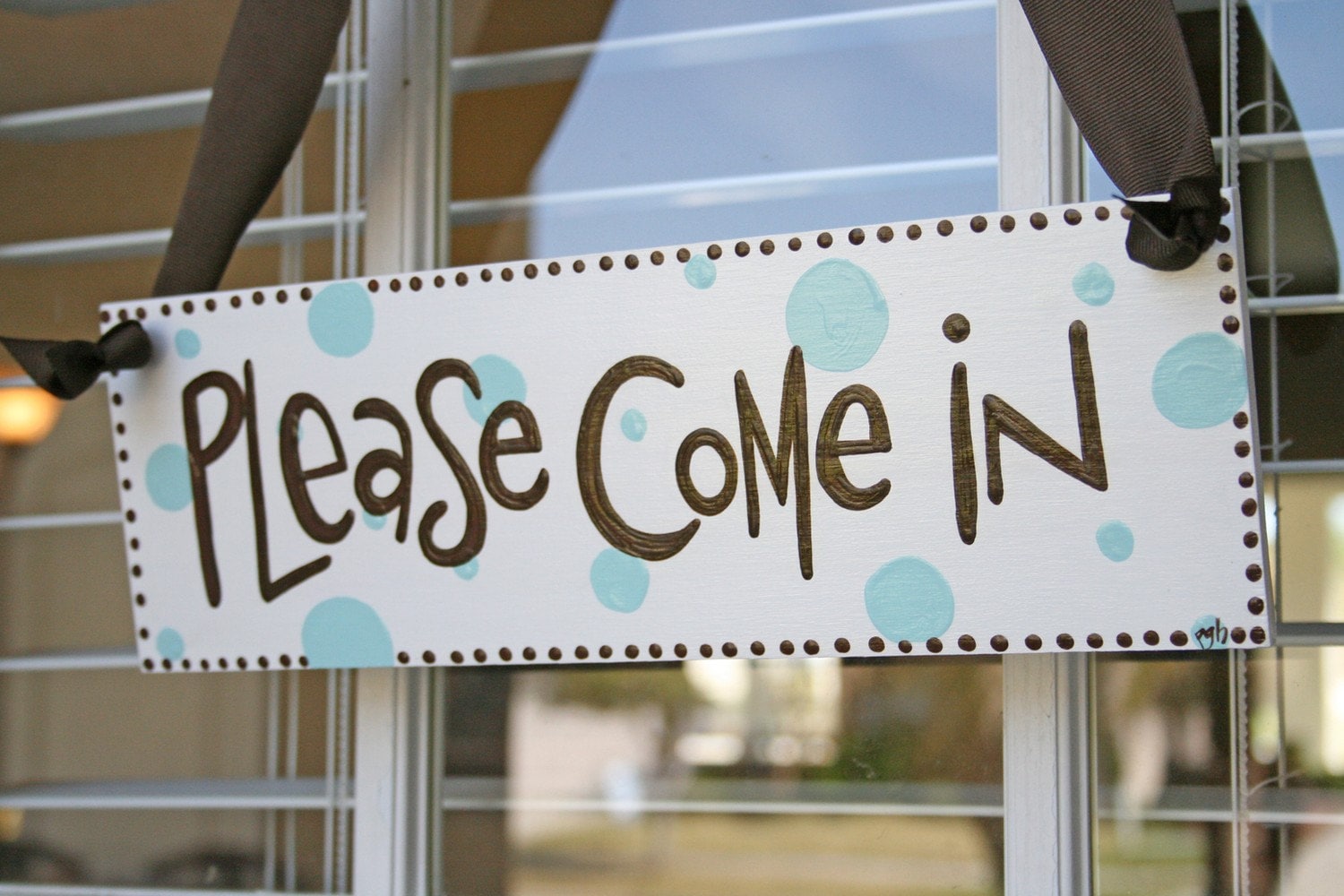Now, after much thought, I think I’ve decided upon an equivalent, if not greater, leadership skill: approachability.
If someone isn’t approachable, the skill of listening can’t be used and thus doesn’t really matter. Those you lead, or want to serve, need to recognize you as someone they trust enough to visit and talk with. To them, you must be seen as a room that is inviting to walk into.
Have you ever had a boss or a leader who made you more nervous than comfortable? I’m sure the old-school types will say that intimidation isn’t a bad thing, and maybe that works for some. But I don’t think it works for most. It never worked for me. If the essence of leadership is relationships, then approachability has to matter. Without it, leaders become isolated. Their influence withers.
If you want to improve your approachability, start with your communication skills (back to listening) and your emotional intelligence. For example, take this next week and practice hard at being completely devoted to every conversation in which you find yourself. Keep the cell phone put away, and pay attention like you never have before. You may find something unusual happens - people can't wait to talk with you!
Approachability is clearly an essential quality for organizational advisors who work with young people. An advisor cannot do their job if the students he advises chooses not to interact with him. And the best advisors try to be approachable to every student, no matter their background or beliefs.
For students, you have a Greek advisor on campus, and they are there to support you and help you grow. In order to do that, they need to be in a position to coach you, mentor you, and simply talk with you. So, how approachable is your Greek advisor? Do you walk towards him or her eagerly, or gingerly? We could ask this about your chapter/alumni advisor as well.
For advisors, we should routinely take some time to investigate our approachability. It starts with observing what is happening around us. Approachable leaders will have a lot of drop-in traffic. They will also find themselves in many conversations that they do not initiate. Students will be genuinely excited to spend time with an approachable advisor. Also, if we are approachable, we may find that people want to discuss big things with us. We will often hear “hey, can I run an idea past you?” That’s the fun stuff.
When I worked as a campus professional/advisor, there was no quality I held more sacred than approachability. I worried about it almost every day, and did anything I could to avoid losing even an ounce of it. This probably made me an overly careful person who worried too much about how others regarded me. But, given that I chose a profession that was all about relationships, I can still justify that degree of cautiousness.
It all boils down to this for me - if you sign up to work with young people, from Kindergartners to college students, you have the responsibility to be approachable. Otherwise, you can’t do your job.
Politics and Approachability
I’ve had something weighing on my mind. We just went through a contentious election and over a year’s worth of political battles. And, I’m sure you would agree, civility was in short supply. I was quite amazed at how many youth development professionals - including fraternity and sorority advisors - were wide open about their politics on social media sites like Facebook and Twitter. And it wasn’t just “I think Romney is the right guy,” or “I’m glad Obama won.” It was quite intense at times.
 |
| Saw this posted many times. Usually followed by a political post. |
Our choices influence our approachability. Politics is a hot-button issue that often causes emotions to triumph over rationality. Should a student, who is still trying to figure out their beliefs, be able to see a tweet from their advisor that enthusiastically puts her political stripes on full display and be able to compartmentalize it? Sure. In this day and age, will they? I’m not so sure. It’s probably why I’m a chicken about sharing those kinds of beliefs in public.
Some may wonder if my reticence to share politics out loud like that means I’m not as confident in my beliefs. My reticence is simply practical. I want the conservative Christian pro-life Republican and the liberal environmentalist pro-choice Democrat to feel equally excited to walk through my office door and share their dreams with me.
I'm not trying to tell any advisor what to do. My choice to not broadcast most of my personal beliefs about politics, religion, etc. has worked for me - and it is my choice. There have been many times I’ve wanted to post something on my Facebook page about sensitive topics, but I’ve held back. I share those thoughts with my friends and family instead.
The point is, approachability matters. And it’s not something that emerges without attention and thought. Those of us in positions of leadership and influence should be driven by the answer to fundamental questions: if I open the door, who is excited to come in and see me? And who isn't?

No comments:
Post a Comment